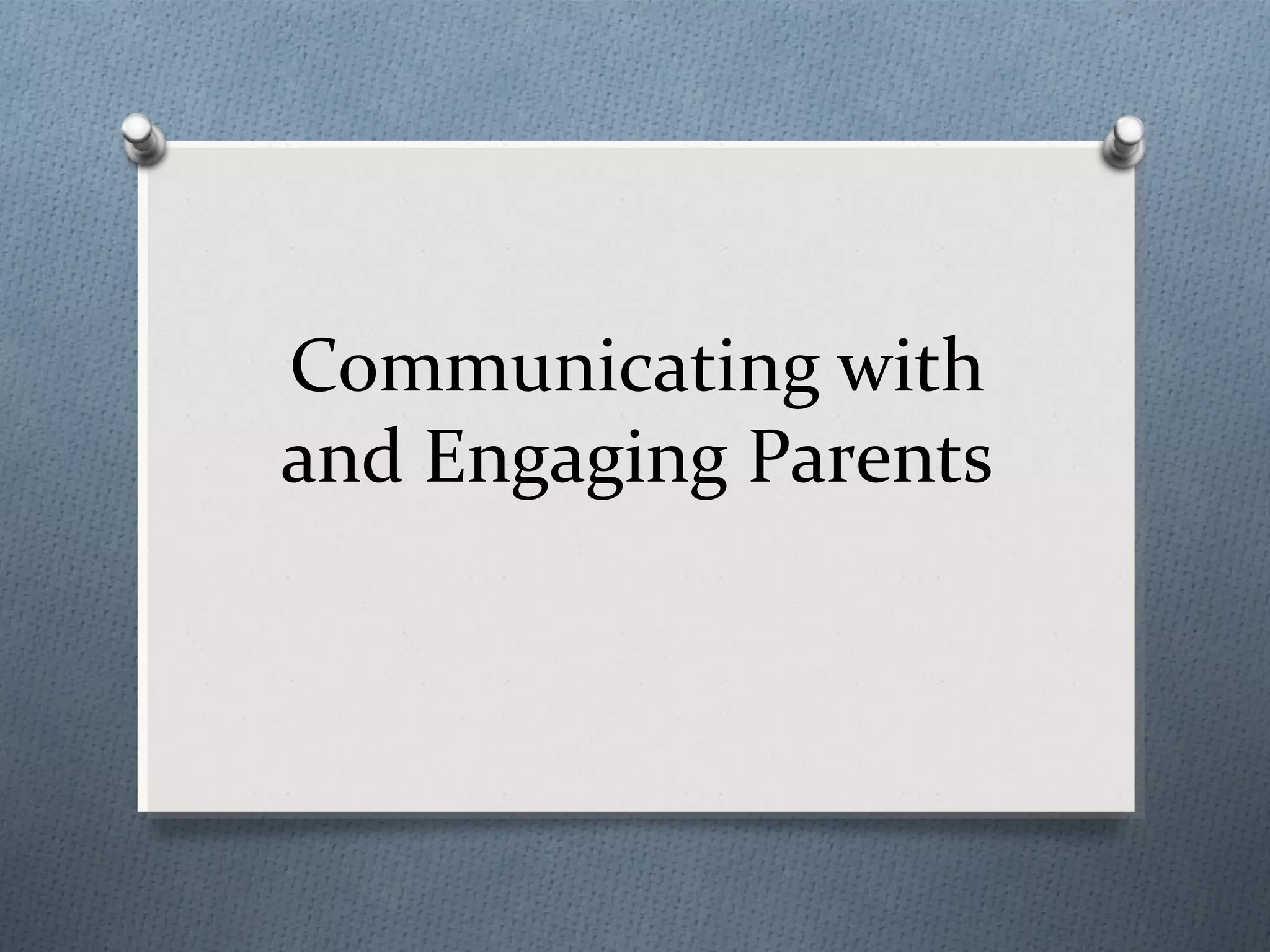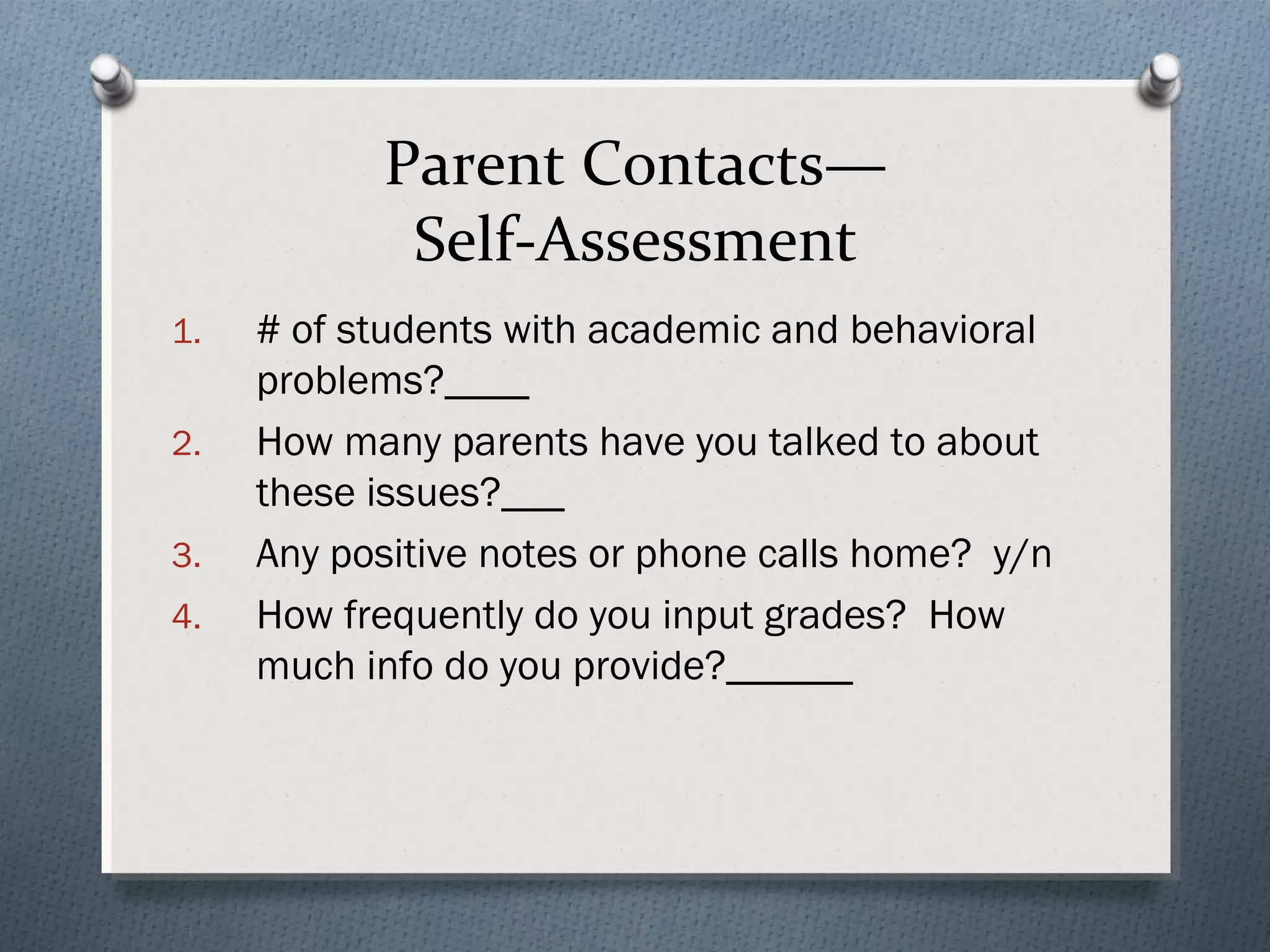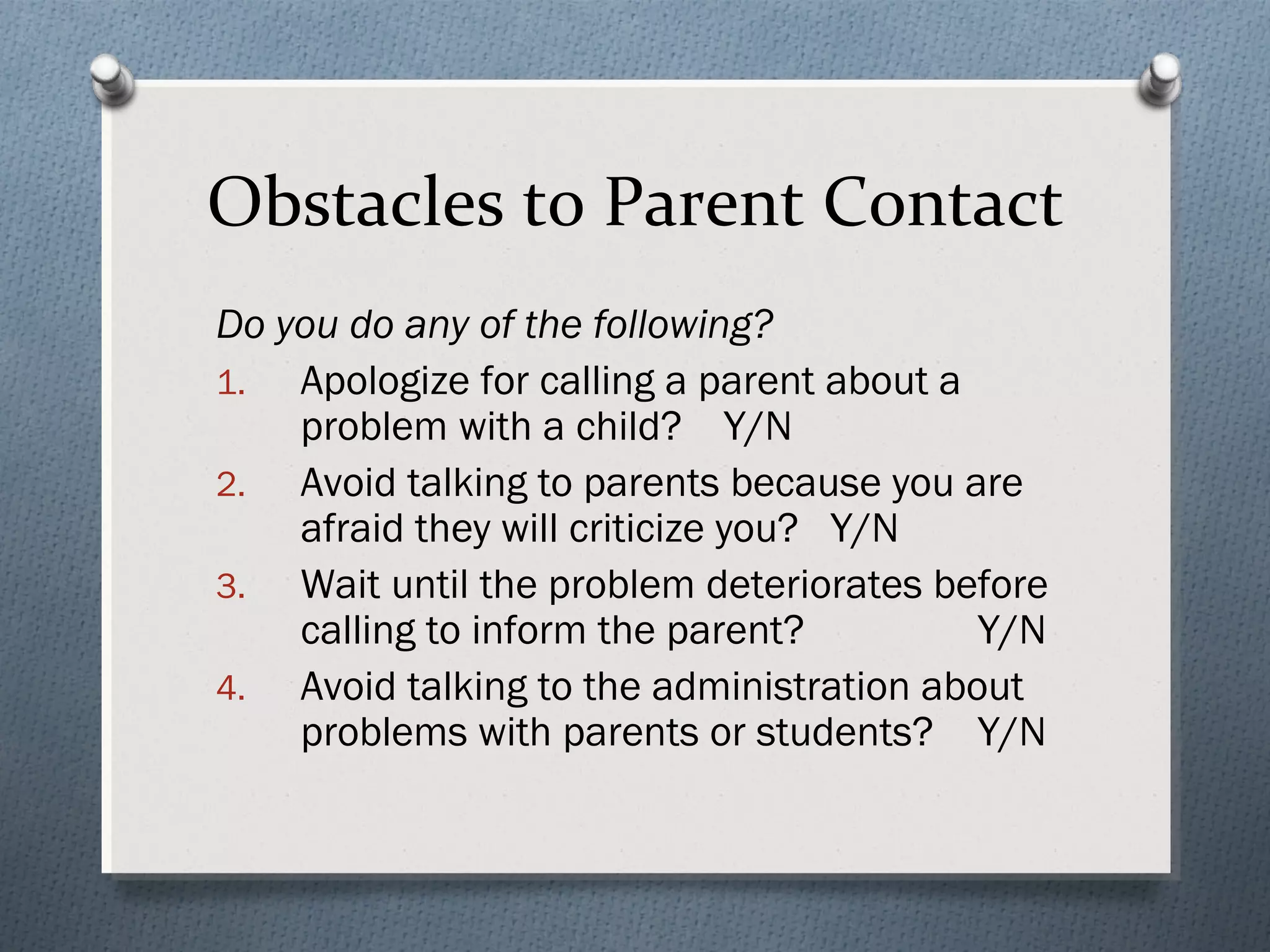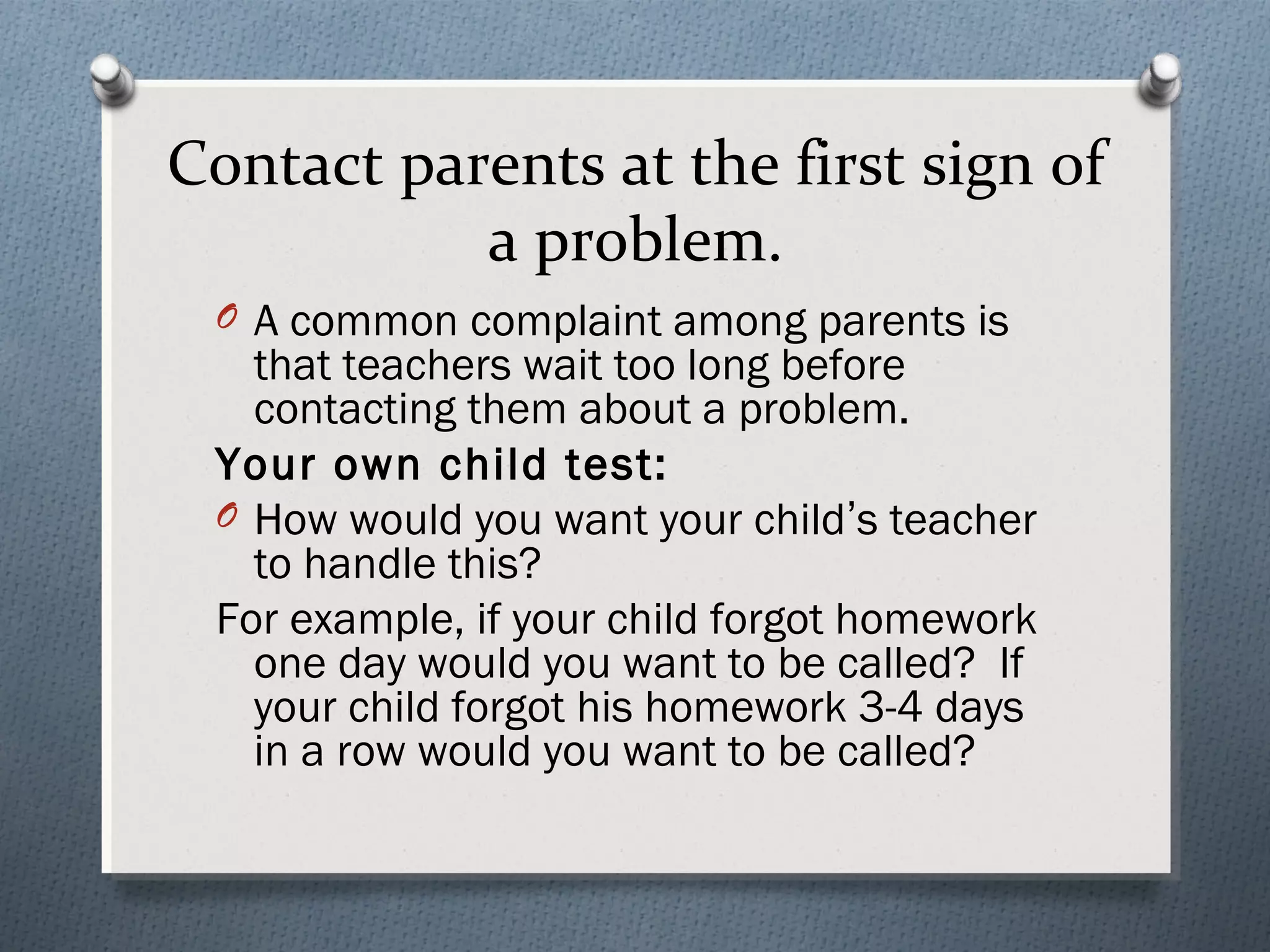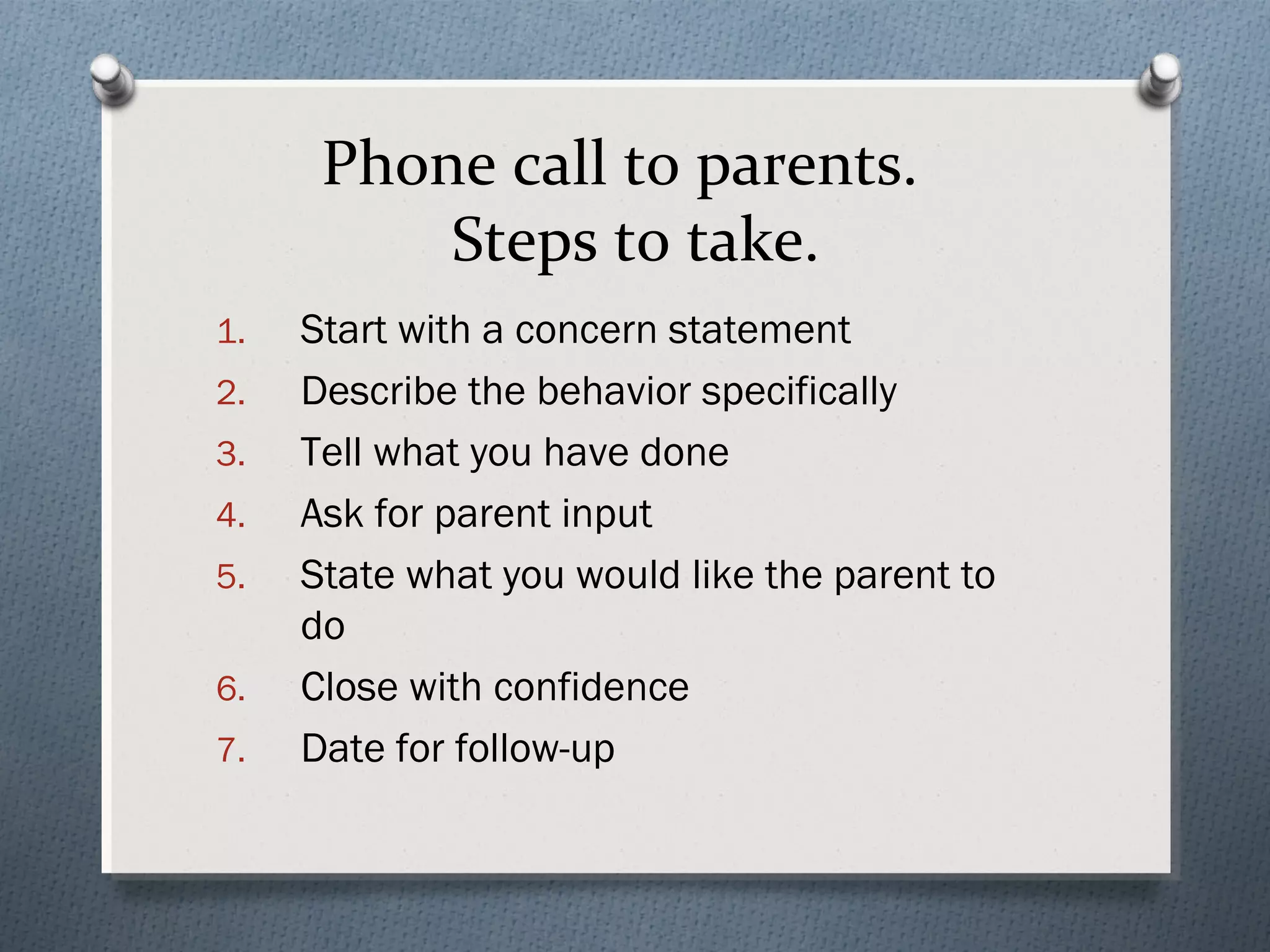This document provides guidance for teachers on engaging with parents and dealing with difficult parent situations. It discusses the importance of parent engagement, strategies for engaging parents like parent-teacher conferences and contacting parents about student issues. It also covers potential obstacles to parent contact, reasons parents may get angry like lack of communication, and tips for handling difficult parent interactions such as active listening, validating parents' perspectives, refocusing critical conversations on solutions, and avoiding triggers. The document emphasizes building positive relationships with parents through respect and collaboration.
